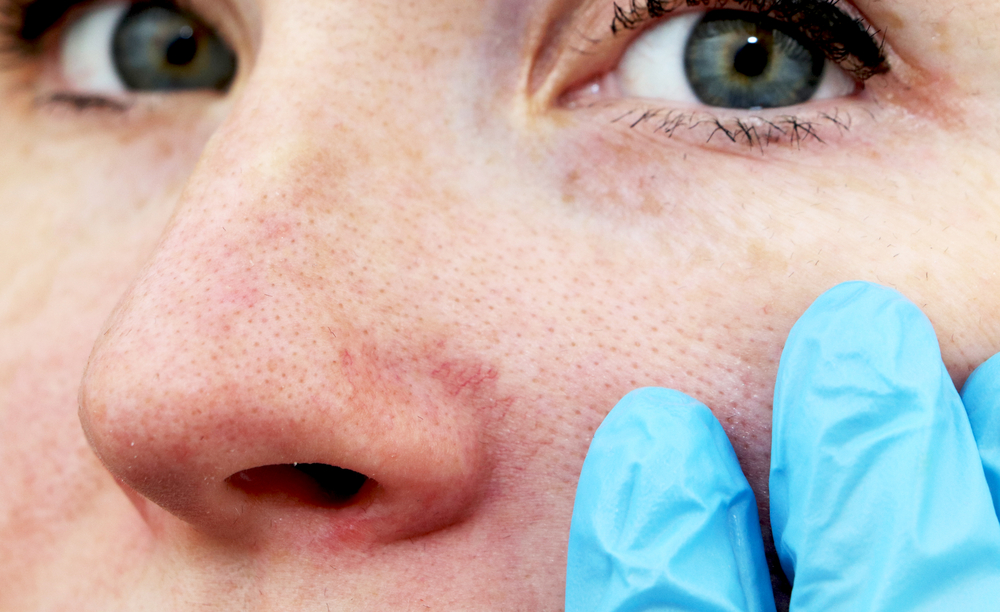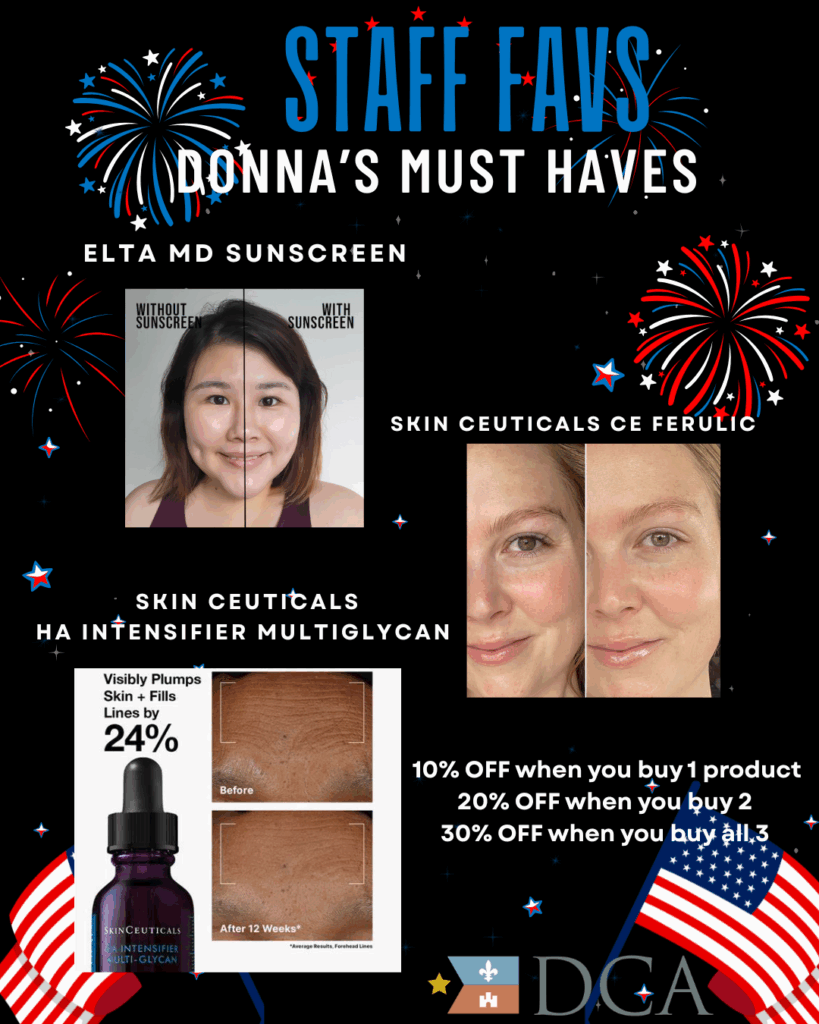Rosacea affects nearly 14 million people across the United States. People who suffer from rosacea tend to find themselves embarrassed of their own skin, and that’s why at the Dermatology Center of Acadiana in Lafayette, LA, we work to create the perfect rosacea treatment plan for you and your specific condition. Learn more on Excel V Laser for rosacea Reviews.
If left untreated, rosacea can create longterm and even permanent issues for your skin. This may also lead to significant mental health issues. Before a treatment plan can be created you need to have a diagnosis first. This helps us understand what causes your flareups, and from there, we can determine the exact type of rosacea that is affecting your skin.
What Is Rosacea?
Rosacea may first appear on the skin as visible redness and more pronounced blood vessels on your face. This is a common skin condition that can create small, pus-filled bumps on the face. These bumps are typically caused by a flareup that may last for a few weeks to months.
Though rosacea has the potential to impact other areas, it is most likely to occur on the face. It is common for rosacea to be mistaken for acne or other skin conditions, but if left untreated, it will only get worse as time goes on. There is currently no cure for rosacea, but there are many forms of treatments to help alleviate the symptoms of rosacea.
What Causes Rosacea?
The true cause of rosacea is unknown, but scientists have been able to link the condition to a genetic component. With that, scientists believe that rosacea is more likely present in adults when it can be linked to a family history of the skin condition. This does not mean it will present itself if there is a history. It also does not mean you cannot develop it if there is no family history. It simply means you are more at risk for developing this skin condition.
Who Is Most Likely to Develop Rosacea?
Rosacea can develop on any person, regardless of skin tone, but a few factors may make a person more susceptible to developing it.
Genetic Factors
Since rosacea has been linked to genetics, you are more likely to develop rosacea if someone in your family already has it. It is common for women over the age of 30 who have lighter skin tones, light-colored hair, and blue eyes to develop rosacea. If you have suffered from extreme acne in the past, you may be more likely to get rosacea.
Lifestyle Choices
Since the cause of rosacea is still unclear, there are many factors that have been studied to determine if they play a role in development. People who smoke have been more inclined to develop rosacea with age. When you smoke, the nicotine causes the blood vessels to narrow. With prolonged smoking, the blood vessels become less elastic and blood flow becomes limited, which can lead to the signs of rosacea.
Sun-damaged skin may also play a role in who is most likely to develop rosacea. Similar to how smoking narrows blood vessels, untreated sun-damaged skin can lead to a widening of the blood vessels, making them much more apparent on the face.
Mites and Bacteria
No one wants to think about this, but even if we are alone, we are never really alone. We all have tiny mites that dwell on our skin that are there to keep our skin looking healthy and tend to not cause any harm. There are some people with sensitive skin that is aggravated by these mites. There are also occasions when a person has too many mites on their skin, which can lead to rosacea.
An increase in the bacteria H. pylori that are found in your gut can lead to an increase in gastrin, a digestive hormone. When this occurs, it can give your skin a flushed appearance and lead to rosacea if left untreated.
The Different Types of Rosacea
Before jumping into a plan for rosacea treatment, a correct diagnosis must be made to understand the exact type of rosacea that is impacting your skin.
Erythematotelangiectatic Rosacea (ETR)
ETR or subtype one is the type of rosacea where the face has visible blood vessels, redness, and flushing.
Papulopustular (Acne) Rosacea
Acne rosacea, or subtype two, usually affects women over the age of 30 and gives the appearance of acne-like breakouts.
Rhinophyma
Rhinophyma, or subtype three, is a rare type of rosacea that leads to the skin on your nose to thicken. This type of rosacea typically affects men.
Ocular Rosacea
Ocular rosacea, or subtype four, is when the symptoms of rosacea occur on and around the eyes.
There are many cases where more than one subtype occurs for patients. Though it may require different forms of treatment, there are ways to alleviate the symptoms.
Symptoms of Rosacea
Erythematotelangiectatic Rosacea (ETR)
The symptoms of ETR are typically found in the center of your face, where skin can be swollen, sensitive, and have broken blood vessels. There also may be stinging, burning, dry, scaly, or rough skin in extreme cases.
Symptoms of Papulopustular (Ance) Rosacea
With this type, the appearance of the skin looks like breakouts with raised patches of skin and extreme redness. The skin may appear oily, be more sensitive, and have broken blood vessels.
Symptoms of Rhinophyma
The skin thickening on the nose can spread to the chin, forehead, cheeks, and even the ears if left untreated. Your pores may look very large, and the texture of the skin may be bumpy as well. With this type of rosacea, the blood vessels will be visibly broken.
Symptoms of Ocular Rosacea
With this type of rosacea, your eyes may always appear bloodshot, be extremely watery, or have cysts present. Many times the eyes will be sensitive to light, be dry or itchy, and sometimes even experience burning or stinging sensations. If left untreated, this can lead to poor vision.
If you are experiencing any of the symptoms above and believe you may have undiagnosed rosacea, seek medical attention to get it treated and under control.
Types of Rosacea Treatment
Even though the cause is still unclear, there are many forms of rosacea treatments that can help in relieving the many symptoms. An evaluation of your condition will be completed and a plan will be developed specifically for you.
Medications
There are a number of medications available that our doctor may be able to prescribe to you that helps alleviate the symptoms of rosacea. In many cases, these medications take weeks or months before an improvement can be seen. Depending on your exact case, you may be prescribed medication to simply clear up the bumps or redness or medication that can tighten blood vessels.
Procedures
In many cases, if the medication does not provide symptom relief, our doctor may recommend a different type of rosacea treatment. For extreme cases, these procedures may be your first stop. Dermabrasions can be performed in which our doctor will sand off the top layer of skin, revealing healthier-looking skin. Our doctor may choose to use lasers that have intense light to minimize the size of larger blood vessels.
The treatment of your rosacea depends greatly on the type and severity of your case. Multiple forms of treatment may be performed to give you healthier-looking skin.
Complications if You Do Not Get Treatment for Rosacea
Untreated rosacea can lead to a multitude of other health issues, including permanent redness and swelling. Though the condition is most common in men, untreated rosacea can lead to rhinophyma in your nose and cheeks as the oil glands have continued to build up over the years.
Rosacea is not considered a life-threatening condition, but the condition can lead to embarrassment and low self-esteem. This can become incredibly frustrating for patients and many times leads to emotional and mental health issues. Taking the time to learn about your specific type of rosacea, what has a direct impact on your condition, ways to avoid triggers, and what your treatment options are can have a huge impact on your mental health and your ability to cope with rosacea.
Ways to Reduce Flare-Ups of Rosacea
A flare-up of rosacea can occur at any time and last for weeks and even months. By understanding your particular type of rosacea, there may be ways to reduce your risk of a flare-up. Avoiding triggers is one way to save yourself from a rosacea flare-up.
Weather Triggers
Reducing your exposure to sunlight as well as extreme hot or cold temperatures can save your skin from a flare-up. Long exposure to wind may also aggravate your skin and rosacea symptoms may become worse. If you are spending time outdoors, remember to put on sunscreen to protect your skin from further damage. When the temperature drops, take the time to moisturize your skin to avoid any damage from wind and air that might dry it out.
Food Triggers
There are a number of food items that may cause flare-ups to your rosacea. If you are experiencing a flare-up, recall what you have eaten recently and test your hypothesis to avoid these food choices in the future. Many times these flare-ups are associated with hot or spicy foods, dairy products, caffeine, and alcohol.
Lifestyle Triggers
It is proven that stress can lead to a rosacea flare-up. Though stress is oftentimes unavoidable, limiting your stress should be attempted. Use destressing tactics to calm yourself. Avoid taking hot baths as these can also lead to flare-ups as well. It is also important to use skin products that are gentle on the skin and moisturize regularly.
There are people that turn to exercise to cope with their stress in life or to help with low-self esteem brought on by having rosacea, yet intense exercise may make the situation worse. Try less intensive workouts instead to avoid overheating and reduce the redness in your face.
Medication Triggers
Since this skin condition occurs with blood vessel narrowing or widening, certain blood pressure medications may cause a flare-up in your rosacea. Though you may be unable to avoid taking medication, disclose this information to us so we can help you find the best form of treatment for your skin.
Schedule an Appointment With Us!
Your face is the first thing a person notices about you, and the last thing you want a person to remember is your rosacea. If you are ready to receive rosacea treatment, schedule an appointment with us at the Dermatology Center of Acadiana in Lafayette, LA! Take back your life and take control over your rosacea today.

